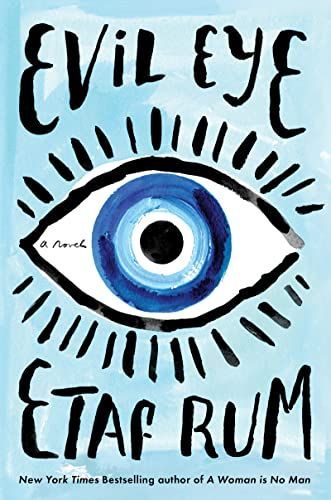
Evil Eye A Novel
The acclaimed New York Times bestselling author of A Woman Is No Man returns with a striking exploration of the expectations of Palestinian-American women, the meaning of a fulfilling life, and the ways our unresolved pasts affect our presents.
Raised in a conservative and emotionally volatile Palestinian family in Brooklyn, Yara thought she would finally feel free when she married a charming entrepreneur who took her to the suburbs. She’s gotten to follow her dreams, completing an undergraduate degree in Art and landing a good job at the local college. As a traditional wife, she also raises their two school-aged daughters, takes care of the house, and has dinner ready when her husband gets home. With her family balanced with her professional ambitions, Yara knows that her life is infinitely more rewarding than her own mother’s. So why doesn’t it feel like enough?
After her dream of chaperoning a student trip to Europe evaporates and she responds to a colleague’s racist provocation, Yara is put on probation at work and must attend mandatory counseling to keep her position. Her mother blames a family curse for the trouble she’s facing, and while Yara doesn’t really believe in old superstitions, she still finds herself growing increasingly uneasy with her mother’s warning and the possibility of falling victim to the same mistakes.
Shaken to the core by these indictments of her life, Yara finds her carefully constructed world beginning to implode. To save herself, Yara must reckon with the reality that the difficulties of the childhood she thought she left behind have very real—and damaging—implications not just on her own future but that of her daughters.
Reviews
Joy KBA@joy_reads
Heather Margaret@heatherdarling
Jazelle H@battyaboutbooks
Bethany Jenkins@bluepenguin17
Kristen Claiborn@kristenc
Alli@maybeitsalli
Lindsay@schnurln
Cheri McElroy@cherimac
Laura Wilson@bookswithlaura
Tabea Lüth@tabealt
Lexie @lexieneeley
Paige Wanner@turntopaige22
Frida Kahlo@fridathequeen
Katelyn B@k8lyn_reads
Katherin @katshelf
Kaycee@kaycee
Highlights
Laura Wilson@bookswithlaura
Page 41
Laura Wilson@bookswithlaura
Tabea Lüth@tabealt
Tabea Lüth@tabealt
Tabea Lüth@tabealt
Tabea Lüth@tabealt
Tabea Lüth@tabealt
Tabea Lüth@tabealt
Tabea Lüth@tabealt
Tabea Lüth@tabealt
Tabea Lüth@tabealt
Lindsay@schnurln
Lindsay@schnurln
Lindsay@schnurln
Lindsay@schnurln
Lindsay@schnurln